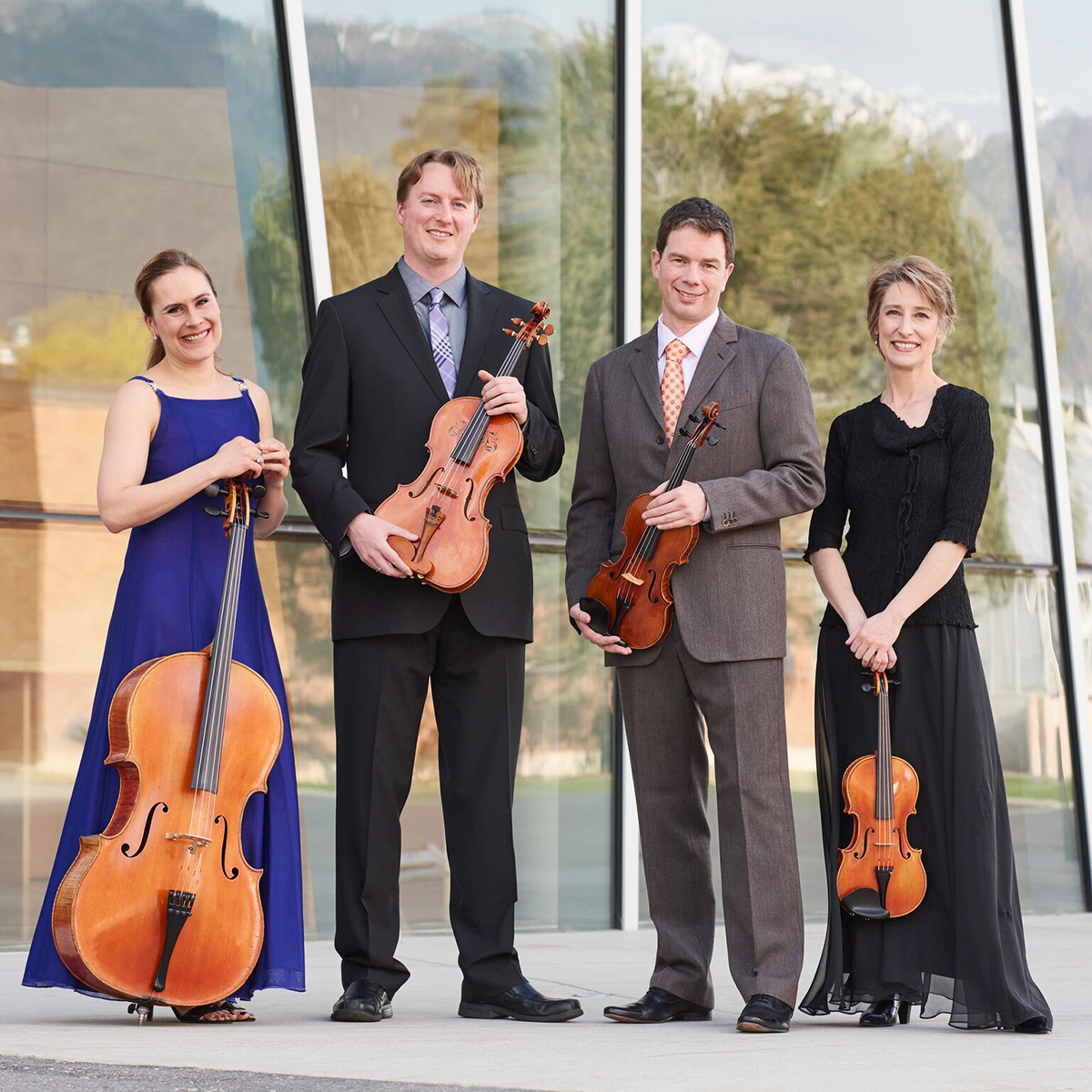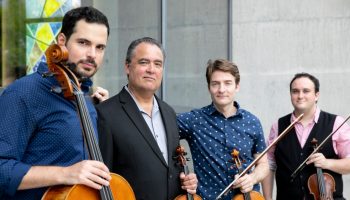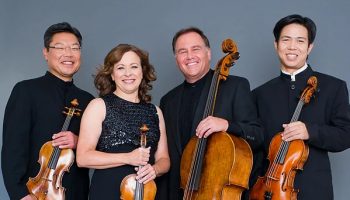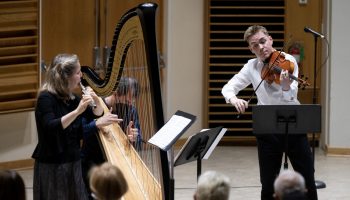At 4 p.m. Saturday, Aug. 4, in Elizabeth S. Lenna Hall, the Fry Street Quartet will perform the music of Haydn, Bartok and Barber. For Barber’s “Dover Beach,” the quartet will be joined by School of Music faculty member and baritone Kelly Markgraf.
The Fry Street Quartet — named after the location of its first rehearsal space — was founded in 1997 in Chicago. The group discovered some success fairly quickly; just a few years after forming, they were one of three American ensembles invited to compete at the Banff International String Quartet Competition.
Although the quartet did not place in that competition, it was a watershed moment, said Rebecca McFaul, founding member. After the process of preparing for and performing in a big chamber music competition, two of the quartet’s members decided that they wanted to pursue chamber music more seriously, but the other two decided that they did not.
After adding two new members, the Fry Street Quartet would go on to win several chamber music competitions and establish a presence as a string quartet to be reckoned with. But before that success, the group embarked on a three-year “Rural Residency” fellowship, which McFaul described as “Peace Corps for chamber music.”
The fellowship, which was sponsored by the National Endowment for the Arts and Chamber Music America, pairs chamber ensembles with rural areas that would like to have an ensemble in residence as part of their community. The Fry Street Quartet was placed in Hickory, North Carolina.
It was a formative experience for the group, McFaul said. In addition to allowing for more rehearsal and performance time, the fellowship gave the members a new perspective on their craft.
“I think sometimes a life in classical music can be pretty rarefled. Leaving that bubble and interacting with audiences that are not seeking you out — there’s a lot to be learned from that.”
-Rebecca McFaul, Founding Member, Fry Street Quartet
The program the group is presenting today includes string quartets by two innovators in the genre — Haydn and Bartok — and Barber’s “Dover Beach,” written for string quartet and baritone.
“Honestly, we wanted to do (“Dover Beach”) because it was an excuse to collaborate with our friend, Kelly Markgraf,” McFaul said.
The quartet and Markgraf have collaborated before on the opera As One, which they will perform with Chautauqua Opera Company at 4 p.m. Tuesday, Aug 7, in Norton Hall. They’ll need to draw on their previous experience working together: Barber himself said that “Dover Beach” is a challenge for all involved.
“‘Dover Beach’ is a very difficult piece because nobody is boss, so to speak,” Barber wrote. “Not the singer or the string quartet. It’s chamber music.”
The pieces by Haydn and Bartok will be familiar for the quartet — in fall 2016, the group began a concert series in which it paired each of the six Bartok string quartets with one of the six Opus 76 string quartets by Haydn.
Saturday afternoon’s concert will feature Bartok’s String Quartet No. 5 and Haydn’s String Quartet in G Major, op. 76. The piece by Haydn, McFaul said, will be a “life-affirming” exhibition in both joy and humor.
Bartok’s quartet, written more than 100 years later, has its own kind of humor. Like much of the composer’s music, the piece uses musical scales that weren’t standard to the Western classical repertoire at the time of its composition, McFaul said. Bartok received a fair amount of criticism for not using the standard musical scales of the time.
As a sarcastic response, near the end of String Quartet No. 5, Bartok writes in several major scales — the most standard scale in Western music — with instructions to play them “very mechanically and with indifference,” McFaul said.
“It’s him saying, ‘You want your major scales? Well, here you go.’ It’s a fabulous moment,” McFaul said.





